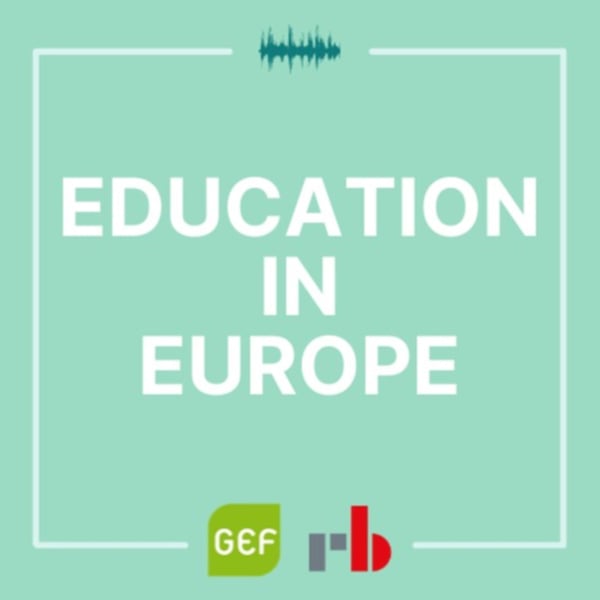What is European citizenship education?
Education in Europe
Education in Europe
5 • 1 Ratings
🗓️ 6 January 2021
⏱️ 28 minutes
🧾️ Download transcript
Summary
Active European citizenship requires a minimum of understanding of how politics operate at the European level but educational programs in this field often do not reach enough young people.
In the first episode of Education in Europe, David Kerr from the National Foundation for Education Research explains what European citizenship education.
Produced by the Green European Foundation - with financial support from the Robert Bosch Stiftung and the European Parliament.
Transcript
Click on a timestamp to play from that location
| 0:00.0 | Education in Europe is brought to you by the Green European Foundation, with financial support |
| 0:06.6 | from the Robert Bosch-Difung and the European Parliament. |
| 0:11.3 | In a time when so much of our world is changing more rapidly than we can often keep up, |
| 0:16.5 | our democracies in Europe and around the world are being tested. |
| 0:20.0 | The challenges are many, but one thing |
| 0:22.3 | remains fundamental. Without the participation of an active citizenship, no democratic system can |
| 0:28.3 | remain healthy and continue to thrive. That also means that young people must become involved, |
| 0:33.7 | conversant and change with the skills to shape the world they want to live in. |
| 0:42.0 | David Kerr has dedicated a better part of his career to citizenship education. |
| 0:46.7 | He works to shape curricula and programs that encourage young people to use their voice and contribute to their communities. |
| 0:49.2 | As the head of initial teacher training at the University of Reading and consultant director |
| 0:53.5 | of education at the NGO, Reading and consultant director of education |
| 0:54.1 | at the NGO, Young Citizens, based in London. He focuses on schools and teachers, the building |
| 1:00.0 | blocks of the next generation of informed and active citizens. I think we live in an age where |
| 1:06.0 | there is an increased demand for effective citizenship education. |
| 1:11.9 | We live in an age of uncertainty. |
| 1:14.9 | And I think that's because of the rapid pace of change in society. |
| 1:20.8 | Things compared when I was growing, the pace of change was much slower. |
| 1:25.1 | But now change is happening so quickly that even adults don't feel |
| 1:28.6 | secure in the world. They're having to learn and relearn all the time, aren't you? Things are |
| 1:35.1 | happening. It's climate change. It's populism. It's nationalism. It's digital. It's extremism. |
| 1:40.6 | The gap between the rich and the poor, it seems to be crisis after crisis. |
... |
Please login to see the full transcript.
Disclaimer: The podcast and artwork embedded on this page are from Education in Europe, and are the property of its owner and not affiliated with or endorsed by Tapesearch.
Generated transcripts are the property of Education in Europe and are distributed freely under the Fair Use doctrine. Transcripts generated by Tapesearch are not guaranteed to be accurate.
Copyright © Tapesearch 2025.

